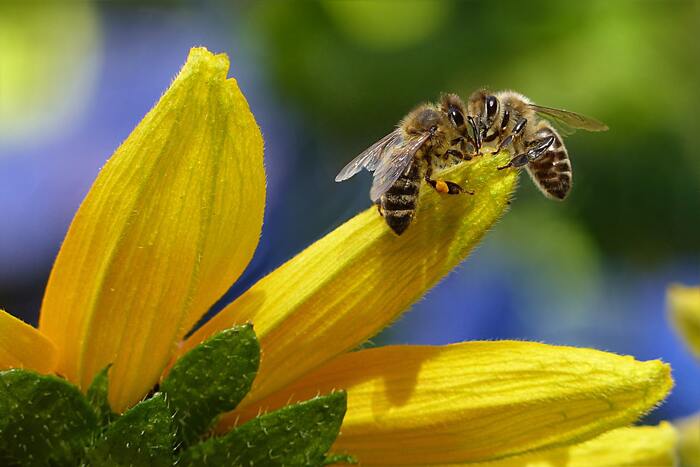Parasites, pesticides and extreme weather events: these are the
main enemies of bees
, responsible for the decimation of entire colonies.
To identify them, with the first systematic study conducted on a very large area, is the Italian research published in the journal Scientific Reports as part of an in-depth study on the decline and extinction of insects and conducted by the Scuola Superiore Sant'Anna using American data .
"Understanding the decline of bees is of paramount importance because pollinators play a fundamental biological and economic role. Our study is the first to consider a large spatial and temporal extent - the entire territory of the United States, for over a period of several years – and multiple potential stressors,” observes statistician Francesca Chiaromonte, EMbeDS (Economics and Management in the Data Science Era) coordinator at Scuola Sant'Anna and Pennsylvania State University.
Net of geographical and seasonal differences, the three factors indicated in the research seem to be the determining ones.
Using several public data sources, the researchers collected and integrated information about the state of bee colonies, the stressors affecting them, weather and land use conditions in the United States between 2015 and 2021.
Thus it emerged that the parasitic mite
Varroa destructor
it is among the main enemies of bees.
"It is widespread on all continents and is strongly associated with the death of bees. The fight against this mite represents one of the most important challenges for modern beekeeping", observes Luca Insolia, first author of the study and who, after studying at the Scuola Sant'Anna is a post-doc at the University of Geneva, after obtaining the PhD in Data Science and having collaborated with the EMbeDS Department of the Scuola Sant'Anna.
"Mites such as the Varroa destructor follow seasonal patterns and beekeepers could exploit the results of our study to implement more effective treatments and to support various other beekeeping practices, such as nomadic activities, supplementary nutrition and overwintering".
Between the seasons, the
it is the most dangerous for bees, notes Martina Calovi, one of the authors of the study and now at the Norwegian University of Science and Technology after studying at the Scuola Sant'Anna.
"Although more data would be needed to fully understand the role of
climate change
, our findings on the adverse effects of extreme weather events on bees provide some important preliminary evidence."
"We hope that our study will contribute to increased awareness of data collection, as well as their sharing with the research world, in the United States and in other regions of the world, including Italy.














